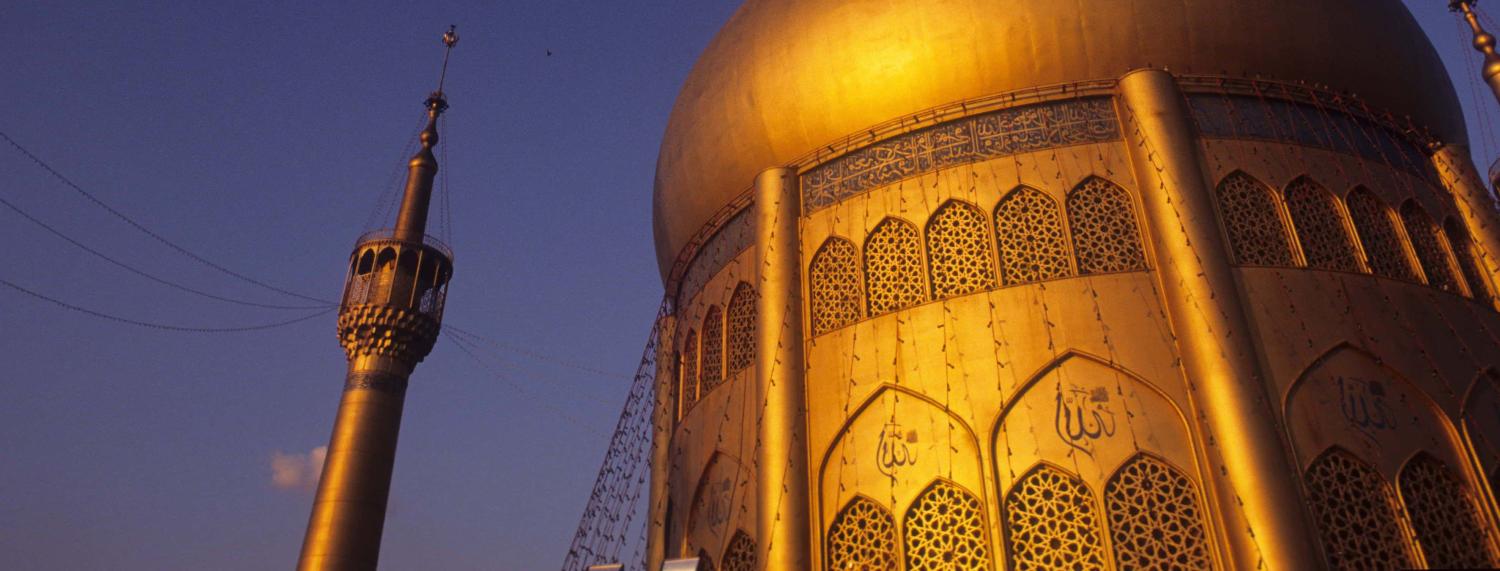The week that was on The Interpreter.
The deadline for US President Donald Trump to decide if the US will continue to waive sanctions against Iran under the Joint Comprehensive Plan of Action is 12 May. Rodger Shanahan:
Perhaps this posturing by the White House is part of a campaign to deny Tehran the benefits of the agreement by destroying confidence in it, while stopping short of actually withdrawing from the deal.
China’s People’s Liberation Army Air Force released a propaganda video in the Hokkein language commonly used in Taiwan. Jason Lim:
Since the Taiwanese language is central to Taiwan and the DPP, it has become, in the eyes of Beijing, the language of ‘independence-minded’ Taiwanese. The gulf between the people and societies of Taiwan and China since 1949 has been so wide that it is no longer fashionable to call oneself ‘Chinese’ in Taiwan.
Chinese President Xi Jinping’s overhaul of the Chinese bureaucracy has empowered the United Front Work Department. Graeme Smith:
This is not merely a shift in the wind’s direction – Xi has added 40,000 cadres to the UFWD’s ranks. Given that China’s substantial aid program was until last month run by less than 100 officials in the Department of Foreign Aid, this is a staggering increase of personnel.
In India, the Narendra Modi–led Bharatiya Janata Party’s electoral success had slowed, and discontent is rising. Priya Chacko:
With only one year to go until the 2019 general election, a crisis narrative is beginning to emerge around the BJP’s inaction on issues ranging from child rape and anti-minority violence to job creation, foreign policy, and tax revenue distribution.
Prime Minister Modi signed into law the introduction of the death penalty for anyone convicted of raping a girl under 12 years of age. Rajesh Trichur Venkiteswaran:
The focus on increased punishment also overlooks the yawning gap in India between what the law prescribes and what happens in reality. Even when the law is made stringent, there are plenty of loopholes in the process of administering justice that enable perpetrators to escape punishment.
David Brewster makes the case for Australia to devote more attention to maritime governance in the Indian Ocean region:
Numerous developing Indian Ocean states struggle to effectively govern their own maritime jurisdictions. This means that the most immediate challenge is to build a basic level of capacity and cooperation among regional states.
And Samir Saran and Abhijit Singh write on India’s strategic interests in the Indian Ocean region:
India still needs to combine its disparate partnerships in the West Asian littorals into a comprehensive strategy, placing trade and infrastructure connectivity at the heart of its maritime engagement. India must also convince partners such as the US, EU, and Japan of the strategic value in investing and engaging with this region in order to reduce regional economic dependence on Beijing.
Anthony Bubalo’s Lowy Institute Paper Remaking the Middle East was released this week. The Interpreter published reviews from Lydia Khalil:
With the US in retreat, the steadily growing engagement of China, and the disillusionment of the Arab uprisings, the appeal of liberal democracy, a framework that could have supported the growth of the green shoots, is waning.
Superficially, the region is seen through the pragmatism of national security; the European Union sees it through the prism of a migration crisis; and the view of the US, and many of its allies, is coloured by a rhetoric of Islamophobia that has been growing since the 9/11 attacks and fallout from the 2003 invasion into Iraq.
And Shahram Akbarzadeh:
The youth in Egypt and Iran see how their counterparts live in Europe and the opportunities they enjoy, and want the same. Frustrated expectations are a destabilising force that goes far beyond the absence of economic opportunities.
Geo TV, the most popular news channel in Pakistan, was taken off-air at the behest of the military and intelligence agencies. Hussain Nadim:
Almost everyone I interviewed, including senior and mid-ranking officials in the security establishment, saw the internal threat emanating from within Pakistan as a primary national security concern. It is taken more seriously than the threat from India, Afghanistan, or the US.
Rodger Shanahan recently visited Iran:
I first went to Iran in the late 1990s, and every time I return I learn something new about the place and its people. The travel can be various parts exhilarating and frustrating, but it’s always educational. My trip last month is a case in point.
